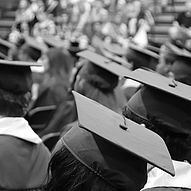
Art History B.A.
Degree
Combined Bachelor of Arts
Program structure
Combinatorial degree programs: These programs combine either a bachelor's subject with a second major subject, or a bachelor's subject with two minor subjects.
You can choose (almost) all the subjects offered by the three philosophical faculties. In addition, second majors and minors can be chosen in business administration, economics, business information systems (only as a second major), and it may be possible to apply to take a second major or minor in further subjects.
Subject are put together in the following combinations:
- either: 1 bachelor's subject (including the thesis) + 1 second major
- or: 1 bachelor's subject (including the thesis) + 2 minor subjects
Special features
None
Description
The B.A. Art History provides the foundation for later specialization in all areas of our discipline. After having completed an elementary study period, you will have gained basic insights into art historical methodology and an overview of Western history of art and architecture. By attending the courses offered by the Institute of Art History, you take up the opportunity to cover the subject of history of art in its entire field of epochs and genres. Subsequently, you can specialize within the framework of advanced courses and practical seminars as well as field trips according to your personal interests. Art History at the University of Regensburg offers numerous practice-oriented courses in the fields of museology, curatorship, provenance research, preservation of historical monuments as well as the art market. You have the opportunity to participate in lectures given by leading experts of cultural institutions. Regular visits to international exhibitions, such as Art Basel, the Venice Biennale, and other ground-breaking exhibitions, in addition to major field trips organized by the Institute of Art History will form an essential part of your course of study. Early on, you also will be able to participate in international workshops, conferences, and symposia.
Professional prospects / competencies
After having completed the Art History program, your skills acquired not only qualify you for working in all classical fields of history of art and visual science, but in new professional fields for graduates of humanities, too.
The broad range of methodological instruments taught in the Art History course of study provides the competence to conduct sophisticated analyses of visual environments with all its objects. During your studies you will also become equipped with key skills in processing, elaborating, and communicating visual facts. The skills provided form a broad basis for you to build a career on, both within and beyond the typical professions of the arts and culture sector.
Naturally, the museum continues to be one of the classic professional fields. There, you can dedicate yourself to the task of preserving, collecting, researching, and making works of art accessible to the public. Altogether, there is a variety of opportunities for you to start your post-graduate career in the following fields, local and international alike:
Science (universities, specialized research institutions); state, municipal and private museums; higher and lower landmark authorities; exhibition sector (curatorial work, guided tours, loan traffic, logistics, etc.); insurance (expert witness, claims management regulator, etc.); tourism (tour guide, program development); cultural sector (event organization and management, consultant in cultural institutions, employee in libraries and archives); journalism (editor at news agencies, publishing houses, radio, television, online media); art trade (galleries, auction houses, etc.); public relations (in art societies, companies, institutions, associations, foundations, etc.).
Internships, lab courses, practical courses
A practical seminar is a fixed component of the program for all students. Students taking the subject as their bachelor's subject can also complete a four-week internship during their studies.
Disciplines involved
Art History
Program duration / standard period of study
The length of the program depends on the progress of an individual's studies. The standard period of study, the time in which the intended program can be finished ideally is 6 semesters. The actual time taken to complete the program may vary. It is limited by the examination deadlines set out in the examination regulations.
Program scope
180 ECTS credits overall;
comprising 90 ECTS credits in the bachelor's subject, 60 ECTS credits in the second subject and 30 ECTS credits in each minor subject
Language of instruction
German, Latin
Program can be started
In the winter and summer semester
What qualities do I need to have?
If you have excellent observation skills and the ability to analyze facts, if you have the capacity to vividly present concepts as well as to recognize and describe historical contexts, then you fulfil the essential requirements for studying history of art. Also, you should enjoy writing texts and discussing originals on site.
Restricted admittance
No
Legal requirements for admission
Required is a higher education entrance qualification, a subject-linked higher education entrance qualification, or a professional qualification.
Application deadline(s)
No admission restriction based on grades.
Information for international applicants
Registration dates and deadlines
Information on enrollment deadlines and required documents can be found on the homepage of the Registrar's Office.
Language skills needed
International students should know that the Art History study program is conducted in German. Therefore, a sufficient level of German is required through the German Language Test for University Admission ("Deutsche Sprachprüfung für den Hochschulzugang"; DSH).
Information regarding German language proficiency for international student.
Documents needed (to apply / register)
Applicants from abroad are welcome. For questions regarding applications from abroad and requirements for admission to the programme, please contact the International Office.
Information on the application documents for international applicants.
Contact within the faculty
Dr. Gerald Dagit
Raum: PT 4.2.27
E-Mail: gerald.dagit@ur.de
Telefon: (0941) 943-3709
Links
- Homepage of the Institute of Art History
- Bachelor Examination Regulations for the Faculties of Humanities I to III (German only)
- Module description (German only)
- Academic counseling service (Fachstudienberatung)
- Introductory meetings (German only)
- Registrar's Office (enrollment / change of degree program) (German only)
- Examinations Office (recognition / semester classification in case of change of university) (German only)



